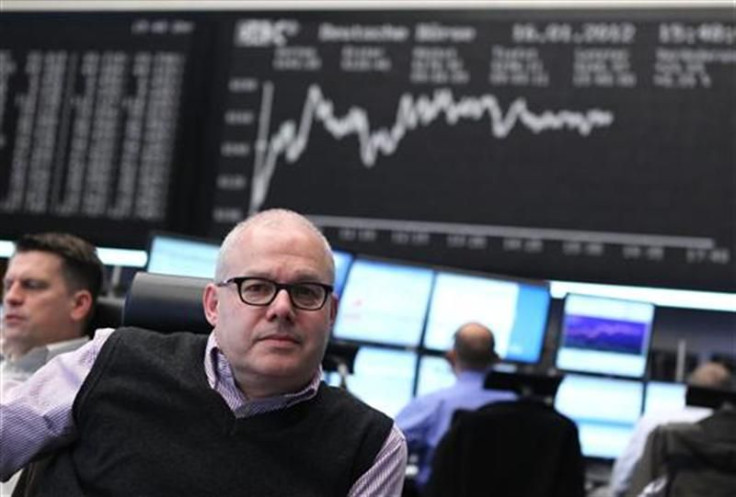European Markets Mixed Ahead Of EU Meeting

European markets were mixed Monday as investors remained watchful ahead of the meetings between the Greek and other European leaders this week to discuss measures to tackle the economic and financial instability plaguing Greece.
The French CAC 40 index dropped 0.05 percent or 1.86 points to 3486.52. Shares of Technip SA fell 0.27 percent and shares of Renault SA declined 0.24 percent.
London’s FTSE 100 index was down 0.06 percent or 3.43 points to 5848.99. Shares of Xstrata PLC fell 0.79 percent and shares of Fresnillo PLC were down 0.66 percent.
The German DAX 30 index rose 0.11 percent or 8.09 points to 7048.97. Shares of Metro AG advanced 0.55 percent and shares of Volkswagen AG rose 0.44 percent.
Spain's IBEX 35 was up 0.62 percent or 47.10 points to 7608.10. Shares of Abengoa SA rose 7.36 percent and shares of Acciona SA advanced 2.01 percent.
Investors are likely to focus on Greece as a series of meetings will be held this week with its government and other European leaders, who are expected to discuss in detail the austerity measures to be introduced in the country.
Last week Greece raised 4 billion euros ($5 billion) in a sale of three-month treasury bills that would help it pay principal bond payments of 3.2 billion euros to the ECB on Aug. 20. Domestic banks bought enough treasury bills to ensure that the government could repay the ECB without trouble.
However, Greece is not fully out of its problems yet, as the government needs to identify a further 4 billion euros of spending cuts that will be delivered over the next two years. This is part of the 11.5 billion euros of savings demanded by the Troika, consisting of the European Union, European Central Bank and International Monetary Fund, in return for more loans.
“Unfortunately, there are no easy options left and some or all of the coalition parties may have to go back on promises that they made to the electorate in order to meet the shortfall,” Ben May, an economist at Capital Economist, said.
© Copyright IBTimes 2024. All rights reserved.











